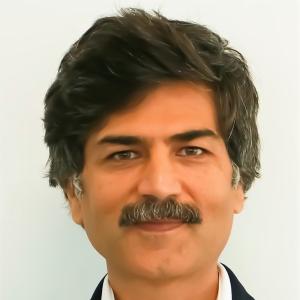Government of Timor-Leste and United Nations sign 5-Year Sustainable Development Cooperation Framework to support the country’s agenda for prosperity and development
14 May 2020
- The Cooperation Framework covers a five-year period from 2021-2025 and was developed in partnership with the Government of Timor-Leste and other development partners in alignment with Timor-Leste’s Strategic Development Plan (2011-2030) and the Sustainable Development Goals (SDGs).
The Government of Timor-Leste (GoTL) and the United Nations today signed the United Nations Sustainable Development Cooperation Framework (UNSDCF 2021 – 2025), a five-year strategy to support the Government of Timor-Leste’s Strategic Development Plan (2011-2030) aiming at country’s transition from a Least Developed Country (LDC) to an upper middle-income country by 2030.
The United Nations Cooperation Framework (UNSDCF) was signed by Hon. Dionísio Babo Soares, Minister of Foreign Affairs and Cooperation on behalf of the Government and Mr. Roy Trivedy, United Nations Resident Coordinator, on behalf of the UN in Timor-Leste, at the Ministry of Foreign Affairs.
“Timor-Leste has a historic relationship with the United Nations. This Cooperation Framework represents a new chapter in the relationship between the Government and the people of Timor-Leste and the UN. The Government of Timor-Leste looks forward to continue to work closely with the UN family to turn our country’s shared vision into a reality for all Timorese citizens”, noted H.E. Minister Dionísio Babo Soares while signing the Framework.
The UNSDCF 2021-2025 follows the United Nations Development Assistance Framework (UNDAF 2015-2020) and builds on the experiences and lessons learnt from the previous programming cycle. The new Cooperation Framework, most importantly, recognizes the collective development efforts of the Government of Timor-Leste, the United Nations development system, development partners, the private sector and civil society in changing positively the lives of Timorese people.
This framework sets out how Timor-Leste can accelerate progress to achieve the Sustainable Development Goals and realise the aspirations set out in the national Strategic Development Plan (SDP), driven by its overarching principle of inclusiveness, with all Timorese having the opportunity to contribute to, participate in, and benefit from national development.
“The next five years are critically important years that will shape the country’s transformation in 2030. This Cooperation Framework represents the UN’s collective value proposition to support and accelerate Timor-Leste’s progress towards achieving the SDGs and its national development priorities. We intend to work with government and all partners to maximise our human, financial and other resources to help achieve the UNSDCF outcomes. We have a conviction that together we can achieve the transformation required that would enable the girls, boys, women and men of Timor-Leste to realize their full potential and contribute to a healthy, strong and prosperous Timor-Leste that leaves no one behind”, said UN Resident Coordinator Mr Roy Trivedy at the signing ceremony.
In the coming years, the UN Timor-Leste will focus on six key areas: supporting nutrition, food security and sustainable agriculture; promoting sustainable economic opportunities and decent work for all; building human capital from early childhood development and supporting life-long learning and skills; promoting quality health care and well-being; strengthening accountable, inclusive and participatory governance and quality public services; and supporting sustainable management of natural resources and resilience to climate change. In all its work, UN agencies will put greater stronger emphasis on respect for human rights, gender equality and inclusion. These outcomes will only be achieved through close partnership with the government (national and local) and other key stakeholders. The UN believes that together we can achieve the transformation required that would enable all citizens of Timor-Leste - girls, boys, women and men - to realize their full potential and contribute to a strong and prosperous Timor-Leste that leaves no one behind.
-END-
BACKGROUND NOTE FOR EDITOR
The United Nations Development Assistance Framework (UNDAF) has been renamed the United Nations Sustainable Development Cooperation Framework (UNSDCF or ‘Cooperation Framework’) to more accurately reflect the nature of the contemporary relationship between Governments and the UN development system in their collaboration to achieve the SDGs.
The new document emphasizes the primacy of the UNSDCF in articulating Government’s expectations of the UN development system and in driving major UN development system contributions at the country level.
UN will support national efforts across six strategic priority areas, to ensure that by 2025:
- Nutrition, food security and agricultural productivity have improved for all, irrespective of the individual ability, gender, age, socio-economic status and geographical location;
- People throughout Timor-Leste in all their diversity, especially women and youth, benefit from sustainable economic opportunities and decent work;
- All people of Timor-Leste, particularly excluded and disadvantaged groups, have increased access to quality formal and innovative learning pathways (from early childhood though lifelong learning) and acquire foundational, transferable, digital and job-specific skills;
- The people of Timor-Leste increasingly demand and have access to gender-responsive equitable, high quality, resilient and inclusive Primary Health Care and strengthened social protection, including in times of emergencies;
- The people of Timor-Leste, especially the most excluded are empowered to claim their rights, including freedom from violence,through accessible, accountable and gender responsive governance systems, institutions and services at national and subnational levels; and,
- National and sub-national institutions and communities (particularly at-risk populations including women and children) in Timor-Leste are better able to manage natural resources and achieve enhanced resilience to impacts of climate change, natural and human-induced hazards, and environmental degradation, inclusively and sustainably.
The UNSDCF represents the UN development system’s collective offer to support the country in addressing key Sustainable Development Goals (SDG) priorities and gaps. It begins and ends with an analysis of the country’s development landscape and SDG priorities, including through the lens of the imperative to leave no one behind.


















